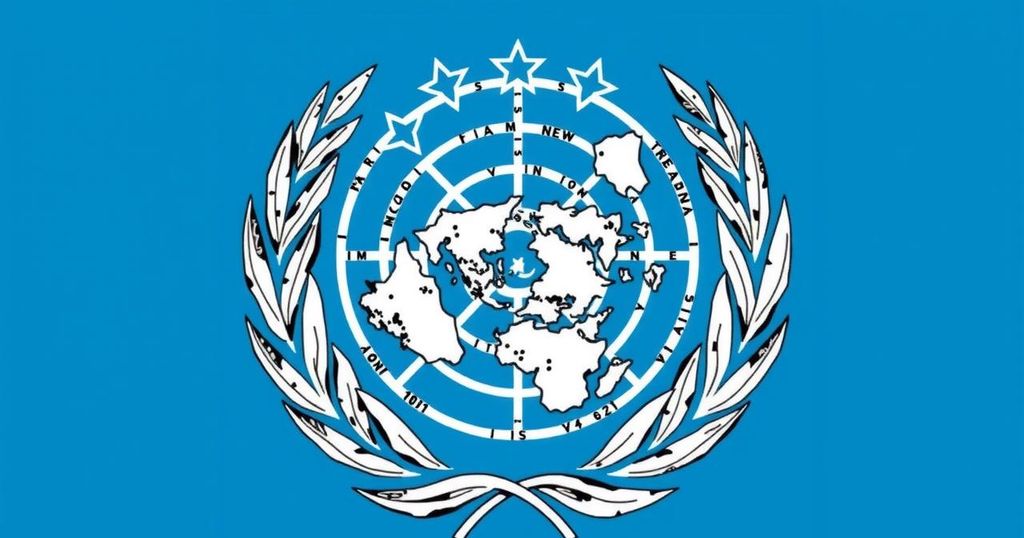Argentina has surprised the international community by voting ‘no’ on a United Nations resolution condemning violence against women, under President Javier Milei’s leadership. This action has drawn extensive criticism and signals a shift towards more conservative policies, alongside Milei’s rejection of traditional diplomatic approaches. His administration’s alignment with U.S. conservative figures and contentious policies represents a dramatic departure from Argentina’s historically progressive stance on social issues.
In a surprising turn of events, Argentina recently became the only nation to vote ‘no’ on a United Nations resolution aimed at combating violence against women and girls. This decision, made under President Javier Milei’s administration, has generated widespread criticism across the political spectrum, highlighting a significant shift in the country’s traditionally progressive stance on social issues. A mere few days prior, President Milei had already stirred controversy by withdrawing Argentina’s representatives from the U.N. climate summit, further demonstrating his increasingly right-wing policies and alignment with U.S. interests. This vote marks a departure from Argentina’s long-standing foreign policy which historically sought integration with the Global South. Analysts, such as Richard Sanders from the Woodrow Wilson International Center, note that this represents a radical change in Argentina’s international relations, with Milei’s administration adopting stances that diverge from the liberal global norms. Critics, including members of the centrist Unión Cívica Radical party and the conservative party of former President Mauricio Macri, have condemned the administration’s isolationist approach, illustrating a growing divide within Argentine politics. Milei’s anti-establishment sentiments and libertarian views were pivotal in his rise to power amid a struggling economy marked by high inflation and debt crises. However, this governance style has led to contentious cultural and diplomatic ramifications, including the dismissal of the former foreign minister over conflicting views concerning Cuba. Since taking office, Milei has pursued aggressive reforms that include dissolving women’s and environmental ministries and espousing contentious beliefs surrounding climate change and reproductive rights. Furthermore, Milei’s recent diplomatic endeavors include a meeting with former President Donald Trump, suggesting an intention to forge closer ties with conservative leaderships. Experts speculate that by aligning with such figures, Milei could leverage support for Argentina in securing financial assistance from crucial international bodies such as the International Monetary Fund. This phenomenon underscores the precarious balance Milei must maintain as he navigates both domestic pressures and international expectations within his libertarian framework. As Milei continues to embrace radical policies that challenge the long-established norms of Argentine diplomacy and social justice, tensions mount within the country, particularly among sectors that view these changes as threats to hard-won rights and freedoms. The responses from the political elite reflect a landscape in flux, calling into question the future of Argentina’s commitment to gender equality and international cooperation in important global agreements.
In recent years, Argentina has been recognized as one of the more socially progressive nations in Latin America, particularly with significant advancements in gender equality, including the legalization of abortion in 2020. However, the ascendancy of President Javier Milei marks a dramatic departure from this trend. Milei’s administration has pivoted towards more conservative and controversial policies, mirroring the political shifts seen in other countries under right-wing leadership. The United Nations resolution against gender violence represents an important global stance on social justice issues, further highlighting Argentina’s unexpected deviation from its prior commitments to gender equality and international collaboration.
Argentina’s recent unilateral vote against a U.N. resolution aimed at combating gender violence illustrates a significant and controversial pivot under President Javier Milei’s leadership. As the first South American country to take such a stance, Argentina faces intense scrutiny both domestically and internationally. The implications of this shift highlight ongoing cultural and political tensions in the nation, particularly as Milei continues to align with radical libertarian and conservative ideologies that reject established norms surrounding social justice and international cooperation.
Original Source: apnews.com






